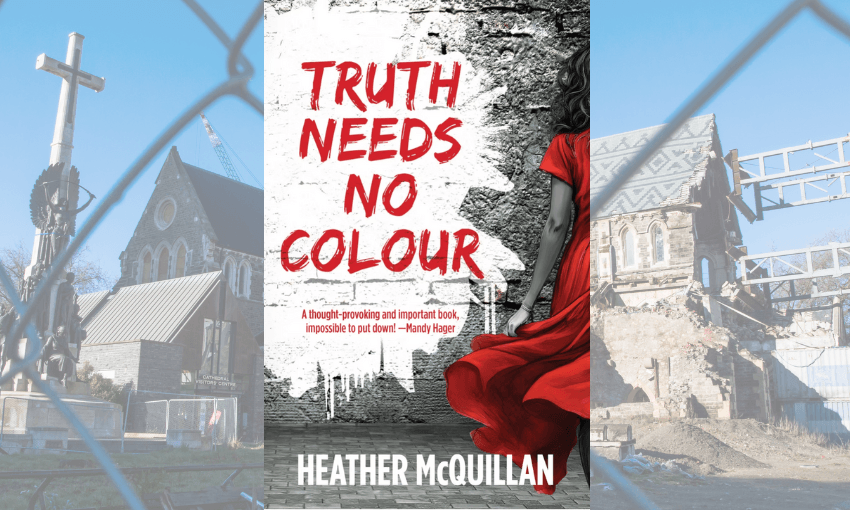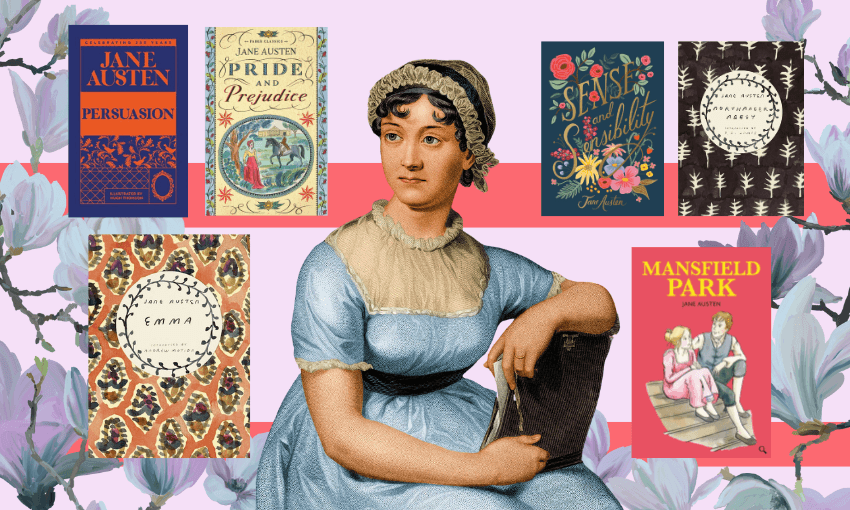Heather McQuillan on the long road to publishing her latest young adult novel, Truth Needs No Colour.
Soon after the February earthquakes of 2011, those of us involved in education in Ōtautahi Christchurch faced another shakeup in the reorganisation of our schools. Some closed, some merged. We were told that this was done in the interests of certainty. But it wasn’t certainty we needed (as if that is even possible!). It was compassion and community. As a result, communities were torn apart. At the time, I had been reading about the privatisation of public education in the USA, where, following Hurricane Katrina, most New Orleans schools were transferred into privately run, publicly funded charter schools. I feared the same would happen here. It didn’t. Not then.
I met my brave, conflicted, artistic Mariana one day in 2012 when I stared at a blank page and wrote a scene about a girl waking on her 15th birthday to three gifts: a red dress, a briefcase of repurposed art supplies and a cheap bead bracelet. She found it hard to be grateful. Life wasn’t fair. The voice of a dead mother intruded. I had no idea what was going on, but Mariana and her whānau — Grandpa Jack, Nana Isla, Scruff and Katya — arrived fully formed.
I set out to write the next scene, but what turned up was the same girl waking on her 16th birthday, only now, she was in a prison camp, covered in bruises and grateful for the beetle she caught and ate. I still had no idea what was going on. This book is the result of my filling in the gaps with all of the thinking I’d been doing about lies and injustice, and with my experiences of wonderful resilience and friendship.
As Mariana’s character developed, the rules of the patriarchal and authoritarian charter schools I’d been reading about became part of her story. Clothing choices are highly regulated, and the children follow painted lines in the corridors with their hands by their sides. I didn’t make this up. A “no excuses” philosophy, the misapplication of positive psychology language, and an overbearing testing regime are common threads in many of these schools where poverty and social-emotional challenges are downplayed, and the children are labelled as the problem if they lack so-called “grit”.
With education becoming the next corporate frontier, it wasn’t a huge leap for me to arrive at the concept of a deliberate charter school-to-private prison pipeline run by the same corporation.
By 2014, I’d finished the first draft of my book, won a New Zealand Society of Authors manuscript assessment, and worked with the incredible Mandy Hager. She said, “This is a seriously good book … you will find a publisher.” But publishers didn’t agree. Most never replied. One called it well-written but “not for them”. Another suggested the romance needed to be “sexed up”. A small publisher showed real interest, but after great reader feedback and much discussion, they passed – not because of the book, but because homegrown YA (young adult fiction) is a hard sell. Let’s hope that is changing because our rangatahi need and deserve to read stories relevant to their worlds. Reading books about their own communities is key to young people’s comprehension and engagement with literature.
Soon I ran out of local publishers to submit to, so I rewrote the setting to Tasmania so I could submit the book in Australia: some interest, a Zoom call, then a “no”. When Cloud Ink Press sought YA submissions at the end of 2023, I reworked the setting again. It is now firmly set in the South Island, reimagined after a disaster, after the government has deemed it financially unviable to rebuild again, and some years after the faceless corporation Carapace has taken hold.
Over the intervening 13 years, the title changed four times, a key character was annihilated, and the romance was not sexed up. I questioned why I kept going, but people I trusted told me it was good. Thank goodness for those people – the ones who cheer us along, encourage, support, read, and champion books for young New Zealand readers.
Though it took so long, sadly, the time is ripe for this story. We live in an age where we don’t have to imagine a government seeking to outsource infrastructure to a faceless corporation. Technocratic, formulaic approaches to education and corporate control through testing regimes and charter schools are once again on the agenda in New Zealand. And our prime minister held a meeting a few weeks back to lure potential private investors to our resources, roads, hospitals and prisons. I definitely never set out to write what has to be the worst possible genre – dystopian nonfiction.
And we also don’t have to imagine a young person daring to question it all and speak out. It is our young people that are leading climate action, challenging corrupt systems and being allies for the silenced. But that’s not Mariana – not at first. It’s too scary, too dangerous. She stays quiet. Things get worse. Then she speaks. Things get even worse.
Of course, I’d love you to buy and read this book and to press it into the hands of young people. But more than that, young or old, even if your voice shakes, take action – through your art, writing, organising, amplifying others, and supporting movements – because activism isn’t just speaking out, it’s showing up in whatever way you can. One voice can spark change. But as in Truth Needs No Colour, it takes many voices – shouting, creating, resisting – to topple those who create and profit from injustice.
Truth Needs No Colour by Heather McQuillan ($30, Cloud Ink Press) is available to purchase from Unity Books.


